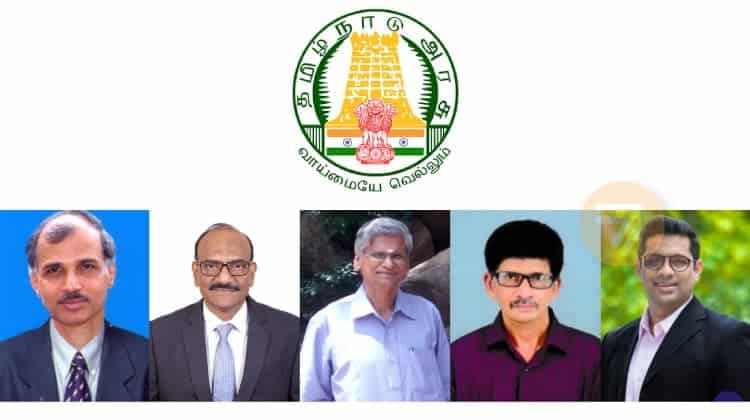TN Assembly Unanimous behind New Online Gaming Ban
25 Mar 2023
Governor Ravi will have to Endorse the Bill this Time
On March 23, the Tamil Nadu Legislative Assembly unanimously ended another episode in the battle against online real money games. Read more about the new online gaming ban below.
The TN LA stood as one and returned the ball to Governor R. N. Ravi’s court by swiftly re-adopting Tamil Nadu’s second ban on online gambling and rummy. This will be the second time the Prohibition of Online Gambling and Regulation of Online Games Bill is presented to Raj Bhawan. And now governor Ravi will have to sign it as per the Union Constitution.
In this Episode
On March 8, the governor stirred up political chaos in the state. This, because he returned the Bill the Assembly had initially passed in November 2022. After waiting four months, R. N. Ravi said that the state LA didn’t have the “legislative competence” to enact this law. He also refused to give it assent.
The move prompted the DMK-led state government of Chief Minister M. K. Stalin to accuse Ravi. He accused Ravi of acting as a “stumbling block to the state’s development.” Seeing it as an escalation of the governor’s confrontational stance.
Political controversy and street protests occurred over the next two weeks, highlighting suicides linked to debt from online gaming. Particularly online rummy, which is widely regarded as a game of skill.
Previously on the TN Political Scene
The state’s first online gaming ban appeared as an ordinance in November 2020 and was made into a bill in February 2021 by the previous AIADMK-led state government, but survived only until August of the same year when the High Court of Madras quashed it for violating the Constitution.
The HC bench ruled on a challenge initiated by a group of gaming companies and industry bodies, including the AIGF, the EGF, and FIFS, and observed that games of skill are to be treated as legitimate free trade activities and therefore banning them was disproportionate to the aim of the law.
The following months were dotted with skirmishes between the now opposition AIADMK and the current ruling party DMK with the former blaming the latter for not acting on online gaming and the latter returning that the former wrote the law to ban online games badly and that’s why it got struck down.
In the meantime, CM Stalin’s cabinet had opted to work on two fronts and had appealed the Madras HC ruling before the Supreme Court while preparing the new bill, which had “Regulation” in its title besides “Prohibition.”
After the second gaming ban was adopted as an Ordinance, the Indian gaming industry submitted its challenge at the High Court but had to place it on hold after the government’s Ordinance lapsed without being replaced by the LA’s Bill as the governor had not signed it, and it had not entered into force.
Update: Raj Bhavan Puts Bill into Force
TN Governor R. N. Ravi gave his assent on April 7, and Tamil Nadu Prohibition of Online Gambling and Regulation of Online Games Act, 2022 was notified and came into force on Monday, April 10, 2023.
Unfazed by the notification of national regulations over online games in the face of the IT Amendment Rules, 2023, former Madras HC justice and current head of TN’s online gaming panel K. Chendru said “We don’t see any other way out except banning. Tamil Nadu will follow its own legislation.”
The E-Gaming Federation (EGF) said it was considering legal action against the act which was defined as an “extremely unfortunate and a disappointing development”, while lawyers commented that the IT Rules amendments and the TN act create a double compliance burden for gaming businesses that wish to operate in the state.
Last August Justice Chandru spearheaded a committee that used two weeks to produce a 71-page report concluding that online games involved no skill and cannot be regulated, and therefore should be banned.
The Argument on Legislative Competence
The Constitution of India delegates the power to legislate and ban gambling and betting to the States. At the same time, numerous Supreme and High Court rulings, including the disputed by M. K. Stalin’s cabinet Madras HC decision, have distinguished games that have a preponderance of skill from games of chance, i.e., from gambling and betting and have held that games of skill are legitimate business activities protected by the Constitution.
The Madras High Court verdict observes that nothing stops the State from implementing a new law regulating online games. Even the Union Information and Broadcasting Minister Anurag Singh Thakur had to clarify in the Lok Sabha that “Betting and Gambling come under Entry 34 of List-II in Seventh Schedule of Constitution of India, in respect of which States have power to legislate.”
Yet, the Tamil Nadu governor claims that the Bill goes beyond the State’s legal competence. And the All India Gaming Federation (AIGF) and other industry bodies have also challenged this particular legal text.
The matter comes down to one question. What is a game of skill and what is a game of chance? The Bill places rummy and poker in the chance category together with roulette and slots, which is its weak spot.
The next developments in Tamil Nadu’s battle against online gaming are still to unfold. Meanwhile, the Union Government is advancing in its efforts to regulate the sector. It aims to create a central law to solve the skill vs. chance ambiguity. The government also seeks to lower the associated risks and societal costs of gaming. This will involve introducing responsible gaming policies on the national level.



